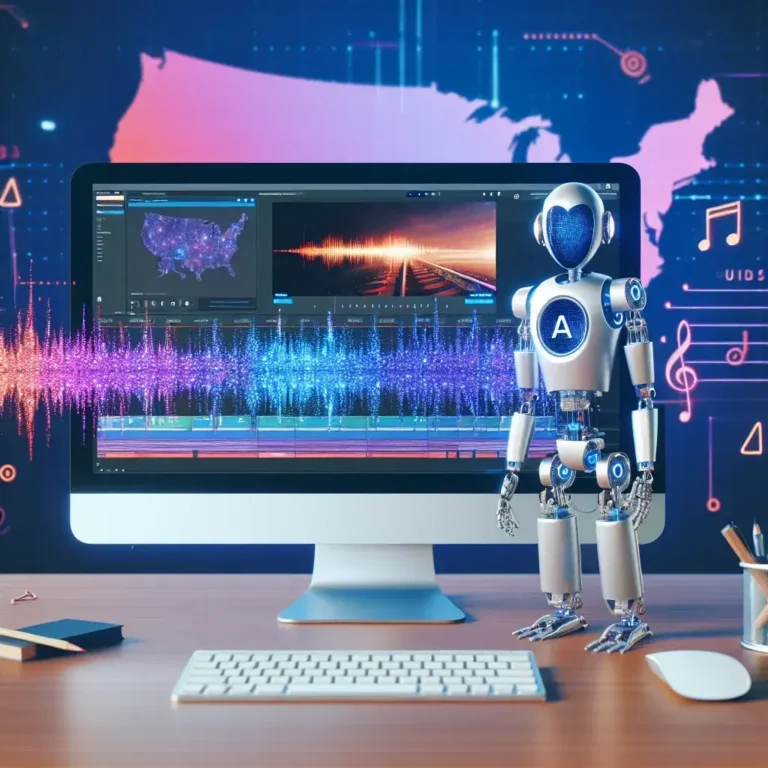The Future of AI in Enhancing Personalized Meal Planning
The world of meal planning is rapidly evolving, and artificial intelligence (AI) is at the forefront of this revolution. Imagine having a personal chef who understands your nutritional needs, food preferences, health goals, and even your grocery budget—without the cost of hiring a human. That’s the promise of AI-powered personalized meal planning. But how exactly does this work, and what can we expect in the future? Let’s explore how AI is set to change the way we plan, cook, and eat.
Personalized Meal Planning
Personalized meal planning is the process of creating meal schedules that are tailored to an individual’s unique preferences, dietary needs, and goals. Unlike traditional meal plans that follow a one-size-fits-all approach, personalized meal planning takes into account various factors such as food allergies, personal taste preferences, and specific health conditions. This allows individuals to enjoy meals that are not only nutritious but also enjoyable. By focusing on a person’s lifestyle, whether it’s managing a medical condition like diabetes or focusing on fitness goals such as muscle gain or weight loss, this method creates a more sustainable and effective dietary routine.
Current Trends in Personalized Meal Planning
The landscape of meal planning has evolved significantly in recent years, with more people opting for personalized approaches. Apps and online services have made it easier for users to receive meal recommendations based on basic criteria like calorie limits, preferred cuisines, or specific diets such as vegetarian, keto, or gluten-free. These apps often integrate with fitness trackers and health apps, allowing users to sync their physical activity and get meal suggestions that support their lifestyle. However, while these platforms have proven helpful, they often fall short when it comes to deeper nutritional customization that goes beyond general guidelines.
As artificial intelligence (AI) technology continues to develop, it’s expected to bring even more advanced levels of personalization to meal planning. Future trends point toward AI-powered meal planners that can analyze individual health metrics in real-time, such as blood sugar levels or nutrient deficiencies, and adjust meal plans accordingly. AI could also help predict potential food intolerances or optimize meals based on long-term health data, making the process of healthy eating more intuitive and precise. This level of deep personalization has the potential to transform how we approach nutrition on a day-to-day basis.
AI and Dietary Restrictions
Catering to Specific Health Conditions
One of the most exciting applications of AI in meal planning is its ability to cater to specific health conditions. For people managing chronic conditions like diabetes, heart disease, or hypertension, diet plays a crucial role in maintaining overall health and preventing complications. AI-powered meal planning tools can help create meal plans that not only accommodate these conditions but also promote better health outcomes by suggesting foods that meet medical guidelines. For example, an AI system could recommend low-sodium options for individuals with hypertension or meals rich in fiber for those managing diabetes, ensuring that each meal contributes to better health management.
AI and Allergen Detection
For individuals dealing with food allergies or intolerances, meal planning can be a challenge. Even a small mistake in ingredient selection can lead to serious health consequences. AI technology, however, simplifies this process by automatically excluding allergens from meal plans and ensuring that each recipe suggestion is safe. AI can detect hidden allergens that are sometimes missed on food labels or in recipes, providing an extra layer of protection. It also keeps track of ingredient lists, avoiding cross-contamination by recommending alternative ingredients or meals that are free of common allergens like gluten, dairy, or nuts.
Additionally, AI-powered meal planners can suggest replacements for allergenic ingredients without compromising on flavor or nutrition. For instance, if a recipe calls for peanuts, the AI could recommend sunflower seeds as a safe substitute. This makes it easier for people with multiple food allergies to maintain a varied and enjoyable diet without the constant worry of accidentally consuming something harmful. By automating allergen detection and providing alternatives, AI ensures that individuals with food allergies can safely explore a broader range of meals while adhering to their dietary restrictions.
Vegetarian, Vegan, and Other Dietary Preferences
AI technology is also making personalized meal planning easier for those following specific dietary preferences, such as vegetarian, vegan, paleo, or keto diets. Each of these diets comes with its own set of rules and nutritional needs, which can be difficult to manage manually. However, AI-driven meal planners can analyze these preferences and generate meal plans that align with the chosen diet while ensuring balanced nutrition. For example, a vegan might struggle to get enough protein or iron, but an AI system can recommend plant-based foods that are rich in these nutrients, such as lentils or tofu.
What sets AI apart is its ability to continuously learn and adapt. If someone on a vegetarian diet starts to crave more variety or wants to try new plant-based alternatives, the AI can adjust the meal plan to incorporate different ingredients while maintaining a balanced nutritional profile. This dynamic adjustment process ensures that individuals can stick to their dietary choices long-term without becoming bored or nutritionally deficient. Whether someone is looking to cut out meat, follow a low-carb lifestyle, or explore other dietary frameworks, AI makes the entire meal planning process more efficient and personalized.
- AI offers tailored meal plans for people with health conditions like diabetes, hypertension, and heart disease, ensuring they meet specific medical guidelines.
- It provides continuous monitoring and adjustments based on individual health metrics, enhancing personalized nutrition.
- AI automatically detects allergens in meal plans, preventing accidental consumption of harmful ingredients.
- It recommends safe substitutes for allergens, allowing individuals to enjoy a broader variety of meals.
- AI caters to specific dietary preferences (e.g., vegan, vegetarian, keto) by ensuring balanced nutrition and offering dynamic meal suggestions that adapt to changing tastes.
The Role of AI in Sustainability
Reducing Food Waste with AI
AI technology is playing a crucial role in reducing food waste, both at the individual and global levels. One of the most significant ways it contributes to sustainability is by helping people plan meals in a way that minimizes leftovers and ensures efficient use of ingredients. AI can track what foods are already in the user’s kitchen and suggest meal ideas that incorporate those ingredients before they spoil. This smart utilization of leftovers can significantly reduce food waste, which is one of the largest contributors to environmental degradation. Additionally, AI-powered meal planners can estimate the right portion sizes based on family size and eating habits, preventing users from overbuying or preparing more food than they can consume.
Furthermore, AI helps streamline grocery shopping by creating shopping lists that include only what is necessary for the upcoming meals, avoiding impulse purchases that may go to waste. Some AI platforms even integrate with grocery delivery services, automatically adjusting the shopping list based on what’s already available at home. This process reduces unnecessary food purchases, minimizes waste, and encourages more thoughtful consumption. By focusing on food waste reduction, AI not only helps users save money but also supports global efforts to reduce the environmental impact of wasted food.
Eco-Friendly Meal Planning
AI is increasingly used to encourage more sustainable eating habits. One of the most impactful ways AI does this is by recommending plant-based meals that have a smaller environmental footprint compared to meat-based diets. A diet rich in plant-based foods requires fewer natural resources such as water and land, making it a more eco-friendly option. AI-powered meal planners can help users transition to more plant-based options by suggesting balanced, nutritious meals that are aligned with their health goals. Additionally, AI can recommend meals based on local and seasonal produce, which reduces the carbon footprint associated with importing out-of-season foods from other regions.
Moreover, AI can help individuals and families manage their food consumption more responsibly by advising appropriate portion sizes, minimizing overproduction, and avoiding unnecessary food waste. Some AI platforms may even take into account the environmental impact of specific ingredients and suggest alternatives with a smaller ecological footprint. For example, instead of recommending a recipe with imported avocados, AI might suggest a similar dish using locally grown vegetables that are in season. By aligning meal choices with sustainability goals, AI enables users to make small, daily decisions that collectively have a big impact on the environment.
| AI Feature | How it Works | Impact on Sustainability | Example |
| Reducing Food Waste | AI tracks available ingredients and suggests meals using them. | Minimizes leftovers and prevents food spoilage. | Suggests meals based on ingredients that are about to expire. |
| Eco-Friendly Meal Planning | Recommends plant-based and seasonal meals. | Reduces the carbon footprint and resource use. | Proposes meals with local, seasonal vegetables. |
| Portion Size Optimization | Adjusts meal sizes to prevent overbuying and overcooking. | Lowers household food waste and reduces excess. | Offers precise portion sizes for family meals. |
Personalized Meal Plans Based on Fitness Goals
AI in Fitness Nutrition
For athletes and fitness enthusiasts, AI can serve as a powerful tool to optimize nutrition based on specific training and fitness goals. Whether an individual is training for a marathon, focusing on strength training, or simply maintaining an active lifestyle, AI can tailor meal suggestions to complement their physical activities. For example, AI can analyze a user’s exercise routine and suggest meals that are rich in the nutrients necessary for recovery, such as proteins for muscle repair and carbohydrates for energy replenishment. This kind of precise, data-driven meal planning ensures that athletes get the fuel they need to enhance their performance and achieve their fitness objectives.
AI also adapts to changes in fitness routines. If someone shifts from a high-intensity workout regime to more endurance-based activities, the AI will adjust the meal plan to reflect the change in dietary requirements. This flexibility makes AI meal planners far superior to static meal plans, as they continuously evolve alongside the user’s training schedule. For those who are just beginning their fitness journey, AI can create balanced meals that ensure proper nutrient intake, helping to avoid common mistakes like eating too much or too little of certain food groups.
Tailoring Meals for Weight Loss, Muscle Gain, or Maintenance
One of the most sought-after uses for AI in meal planning is its ability to assist with weight management goals, whether the aim is to lose weight, gain muscle, or maintain current body composition. Weight loss, in particular, requires careful attention to caloric intake and nutrient balance. AI can help by calculating the precise caloric deficit needed for gradual and sustainable weight loss while ensuring that the user still gets the necessary vitamins and minerals. It can also recommend meals that are filling and low in calories, making it easier to stay within caloric limits without feeling deprived.
For those aiming to gain muscle, AI adjusts the meal plan to include more protein-rich foods and healthy fats, creating a caloric surplus that supports muscle growth without promoting fat gain. On the other hand, maintaining body weight while staying fit requires a balanced approach, and AI excels at designing meals that help users sustain their weight without significant fluctuations. By offering tailored meal plans based on fitness and body composition goals, AI eliminates the guesswork and helps users stay on track, whether they’re trying to slim down, bulk up, or simply maintain their current fitness level.







